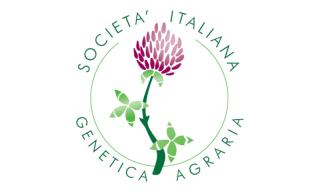Frontiers research topic - Plant-production platforms for veterinary biopharmaceuticals
Public health initiatives such as ‘One Health’ demonstrate the growing awareness that animal and human health are strongly interconnected with each other and with the environment. Veterinary diseases are the cause of major economic losses for the livestock industry, both directly and due to the interruption of trade. In addition, numerous zoonotic pathogens represent a direct danger to human health as demonstrated by the recent COVID-19 pandemics.
Public health initiatives such as ‘One Health’ demonstrate the growing awareness that animal and human health are strongly interconnected with each other and with the environment. Veterinary diseases are the cause of major economic losses for the livestock industry, both directly and due to the interruption of trade. In addition, numerous zoonotic pathogens represent a direct danger to human health as demonstrated by the recent COVID-19 pandemics. Biopharmaceuticals such as vaccines and diagnostics are the most suitable interventions to prevent and monitor the diffusion of pathogens in both domestic and wild animal populations. However, innovation is needed in this field to increase the efficacy/efficiency of these tools, simplifying delivery, and reducing production costs, thus enabling a wider control of pathogens spread. Plant-based production platforms represent a promising approach to meet all these needs. Indeed, in the past 20 years there have been numerous examples of veterinary biopharmaceuticals successfully obtained in plants against a plethora of viral and bacterial pathogens.
The number of approved veterinary biotech biopharmaceuticals, mainly vaccines, is modest when compared to that of analogous products for human use. An important issue hampering the transfer of innovative “medicines” to the veterinary field mainly relates to the generally high manufacturing costs of cutting-edge products that impact on the selling price exceeding in many cases the animal value. This is the reason why for example, currently available veterinary vaccines mainly consist of live attenuated or inactivated viruses. Despite the undeniable advantages of these conventional formulations, several drawbacks may limit their successful application, including the fact that they do not allow the serological differentiation of infected from vaccinated animals (DIVA).
In this research topic we would like to collect examples of recombinant biopharmaceuticals for veterinary use produced by adopting plants as “biofactories”. Indeed, this type of platform is able to safely and efficiently produce structurally complex proteins like antibodies or virus–like particles and represents an attractive alternative to traditional expression systems. Moreover, unprocessed edible plant tissues producing antigens or other biologics may be conceived as biopharmaceuticals themselves, reducing costs and facilitating manufacturing scalability.
The aim is to emphasize the possible role of plant “biofactories” as a common play-ground in which, in line with the One Health Initiative, it is possible to combine a collaborative multidisciplinary effort to face the challenges of developing low cost, effective, and innovative biopharmaceuticals, as well as novel diagnostic assays for both domestic and wild animals.
While the Topic Editors would like to welcome a wide range of submissions of varied article types, we are particularly interested in the following themes:
• Plant-based biopharmaceuticals towards ‘One health’ approach (Review; Opinion)
• Novel plant-based recombinant subunit vaccines and adjuvants (Original Research; Review)
• Plants as “biofactories” of novel veterinary biologics (Original Research; Review)
• Novel plant-produced diagnostic assays for the veterinary field (Original Research; Methods)
Keywords: biofactories, plant-based vaccines, zoonotic pathogens, livestock
Find more information: https://www.frontiersin.org/research-topics/17604/plant-production-platf...





